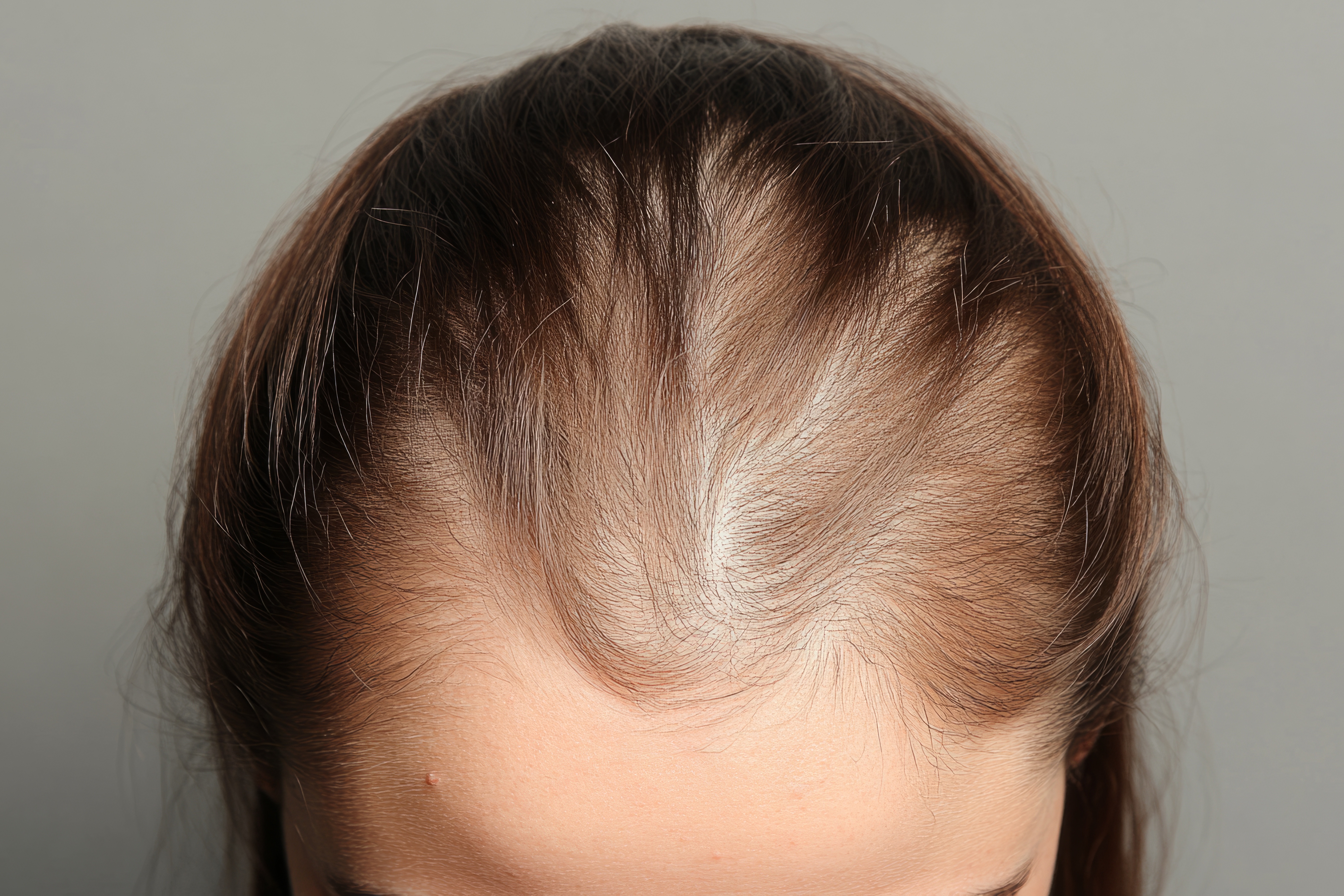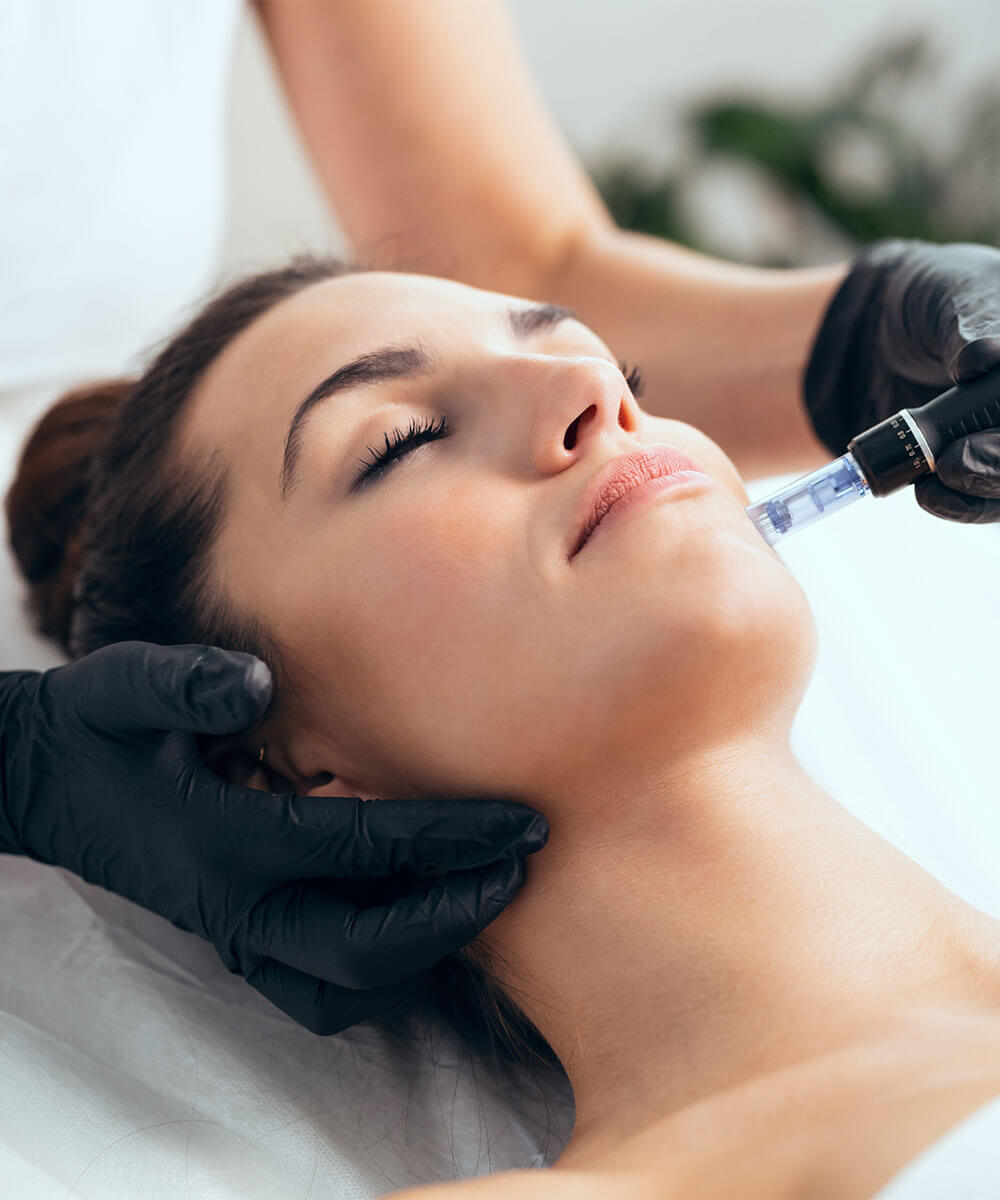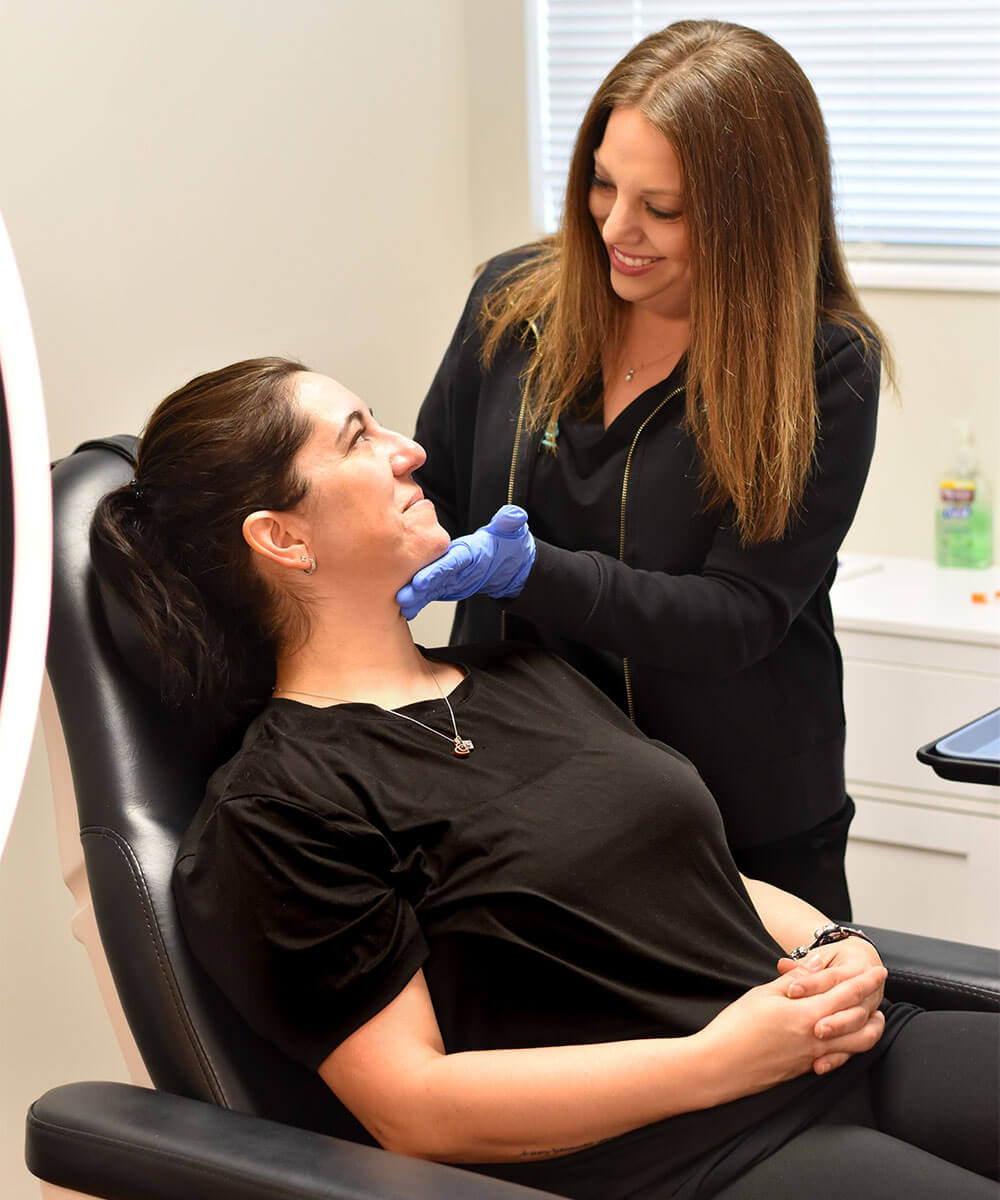
Written by Lauren Lund, APRN-CNP
Reviewed by Laurianne Scott, DO, OBGYN
Last Updated on 07/29/2025
Hair loss can feel overwhelming—but you're not alone. Hair loss affects millions of men and women and can be triggered by a mix of genetics, hormones, aging, and stress. MOBO Med Spa providers often prescribe custom-compounded oral capsules for patients with a mix of powerful ingredients including biotin, finasteride, and oral minoxidil. These can be used alone or in combination with topical formulations. Each of these ingredients work to support healthy hair growth from multiple angles: improving nutrient support to the hair, blocking the hormone responsible for follicle shrinkage, and stimulating increased blood flow to promote stronger, longer-lasting hair. This comprehensive approach makes it easier for patients to address hair loss at its root cause—literally and figuratively.
About Biotin, Finasteride and Minoxidil Capsules
Each of the key ingredients work to support hair regrowth in unique ways.
Finasteride
Finasteride is FDA-approved for treating male pattern hair loss. Finasteride is not FDA-approved for female hair loss, but it's sometimes prescribed off-label, particularly for menopausal and post menopausal women. Menopausal and postmenopausal women are more likely to experience androgenetic alopecia (also known as male or female pattern hair loss), which involves a hormone called DHT shrinking hair follicles over time. Because the decline in estrogen and progesterone unbalances the hormonal environment, this gives DHT a stronger effect on scalp hair follicles - thus leading to hair loss.
Finasteride helps with hair growth primarily by targeting a hormone called dihydrotestosterone (DHT), which can be a key contributor to hair loss. In people genetically sensitive to DHT, it binds to hair follicles—especially on the scalp—and causes them to shrink (miniaturize). This leads to shorter, thinner hair and eventually causes follicles to stop producing hair altogether. When prescribed, Finasteride (a 5-alpha-reductase inhibitor) blocks the conversion of testosterone to DHT, reducing DHT levels by up to 60–70% in the scalp and bloodstream. With lower DHT, hair follicles are no longer under attack, so hair loss slows or stops. Some dormant follicles may start producing hair again, leading to regrowth.
Minoxidil
Oral minoxidil works for hair loss by enhancing blood flow and prolonging the growth phase of hair follicles. Originally developed as a blood pressure medication, minoxidil is a vasodilator, meaning it widens blood vessels. When taken orally at low doses, it can increase circulation to the scalp, delivering more oxygen and nutrients to hair follicles. This can stimulate dormant follicles, extend the anagen (growth) phase, and reduce hair shedding. Unlike finasteride, which targets hormones like DHT, minoxidil works independently of hormonal pathways. Though minoxidil not FDA-approved in oral form for hair loss (like it is for topical application for hair loss), prescribers can prescribe it off-label with generally good results and a tolerable side effect profile at low doses.
Since minoxidil is a blood pressure medication, we do recommend baseline and periodic checks of your blood pressure as rare hypotensive (low blood pressure) reactions have been noted.
Biotin (vitamin B7)
Biotin, also known as vitamin B7, plays a key role in supporting healthy hair growth by aiding in the production of keratin, the structural protein that makes up hair, skin, and nails. It helps the body convert nutrients into energy and supports the function of enzymes involved in amino acid metabolism, which is essential for keratin production. While true biotin deficiency is rare, low levels can lead to symptoms like hair thinning, brittle nails, and dry skin. Supplementing with biotin may help strengthen hair strands and reduce breakage, especially in people with mild deficiencies or poor dietary intake.
Contraindications to Finasteride and Minoxidil
Finasteride is contraindicated in individuals with hypersensitivity to the compound and in women who are or may become pregnant; exposure during pregnancy can disrupt male fetal genital differentiation and crushed or opened dosage forms should not be handled by pregnant persons.[8]
Systemic (oral) minoxidil is contraindicated in pheochromocytoma, severe cardiac insufficiency, and uncontrolled hypertension. Minoxidil should not be used by pregnant patients.
Adverse Reactions and Side Effects
Finasteride’s most frequent adverse events are decreased libido, erectile dysfunction, and diminished ejaculate volume (≈1-2 %); these effects typically abate with continued use, but persistent dysfunction has been reported, necessitating individualized risk-benefit evaluation.[12]
Low-dose oral minoxidil generally causes mild hypertrichosis (excessive hair growth on the body); edema, reflex tachycardia, and dizziness are less common and dose-related. Randomized studies report high overall tolerability, yet baseline cardiovascular assessment and follow-up are prudent.[13]
Biotin is generally considered safe and well-tolerated, especially when taken at typical supplement doses. Potential side effects can include: Mild digestive upset (e.g., nausea, cramping), Skin rashes or acne, especially on the chin or jawline, Allergic reactions (rare, but possible).
- Important Note – Lab Interference: Biotin can interfere with blood tests. Always tell your healthcare provider you're taking biotin before getting bloodwork. It is often recommended to pause biotin for 2–3 days before lab tests unless directed otherwise.
Pregnancy and Breastfeeding
This medication is absolutely contraindicated in pregnancy and breastfeeding. Contact your provider urgently if you become pregnant.
Storage
Store capsules at 20-25 °C (68-77 °F) in a tight, light-resistant container. Avoid humidity to preserve biotin potency and protect minoxidil from hydrolytic degradation; bathroom storage is discouraged. Keep medication out of reach from children.
FAQs
When will I see results?
Reduced shedding often appears by three months, with visible thickening by six to nine months.
Is lifelong therapy required?
Stopping treatment of Biotin / Finasteride / Minoxidil usually leads to follicular miniaturization (hair loss) within a year.
Conclusion
If you're considering hair loss treatment, talk to yourMOBO Med Spa provider. Select MOBO Med Spa locations offer hair growth consultations.
_____________________________
The information provided in this blog post is for informational purposes only and is not intended as medical advice. The content shared here is based on general wellness principles and is not a substitute for professional medical evaluation, diagnosis, or treatment. Always consult with your healthcare provider before starting any new supplement regimen or making changes to your current health plan. This blog does not establish a patient-provider relationship, and the opinions expressed are solely those of the author. Please seek the guidance of your physician or another qualified healthcare professional for any medical concerns you may have.







